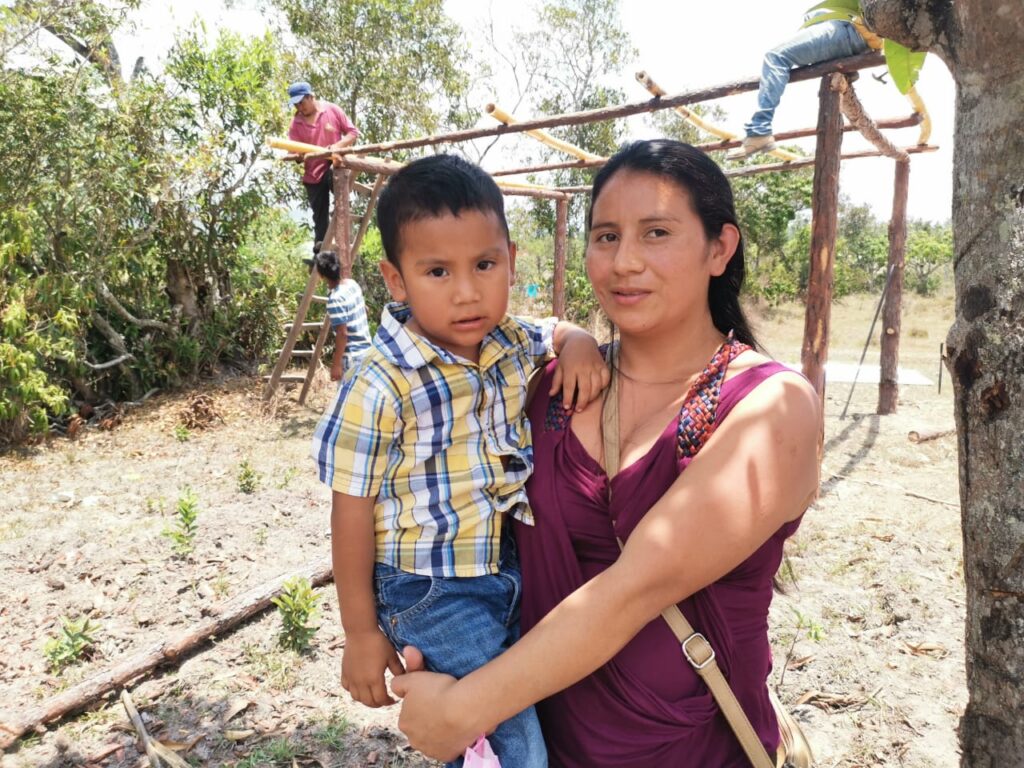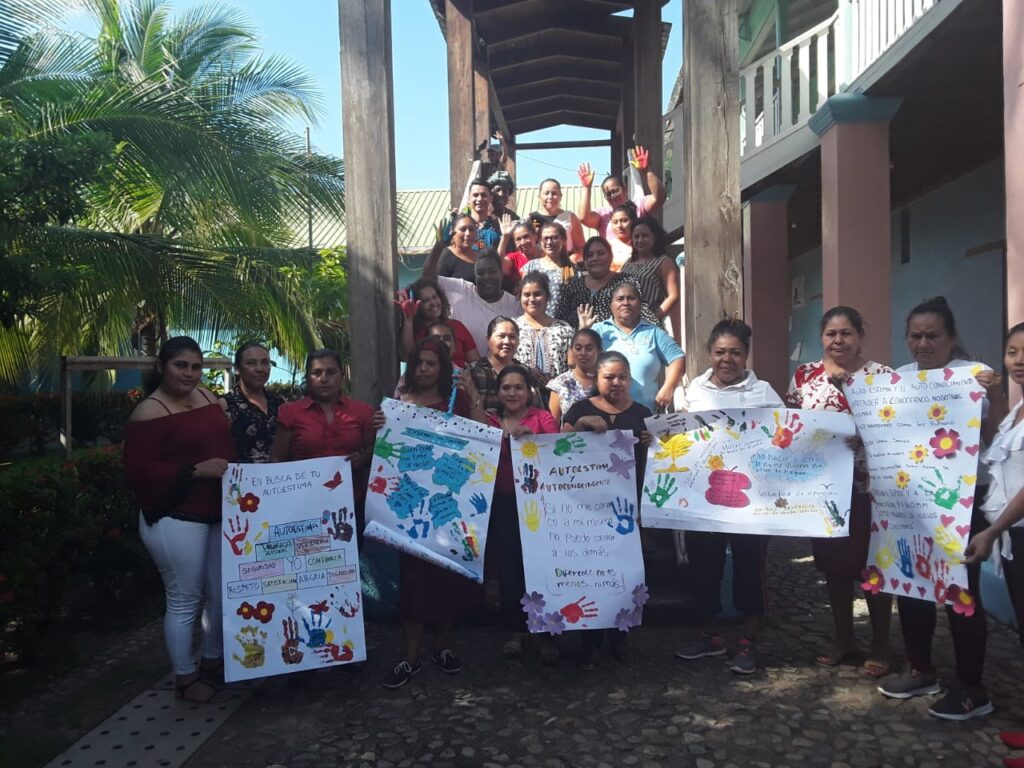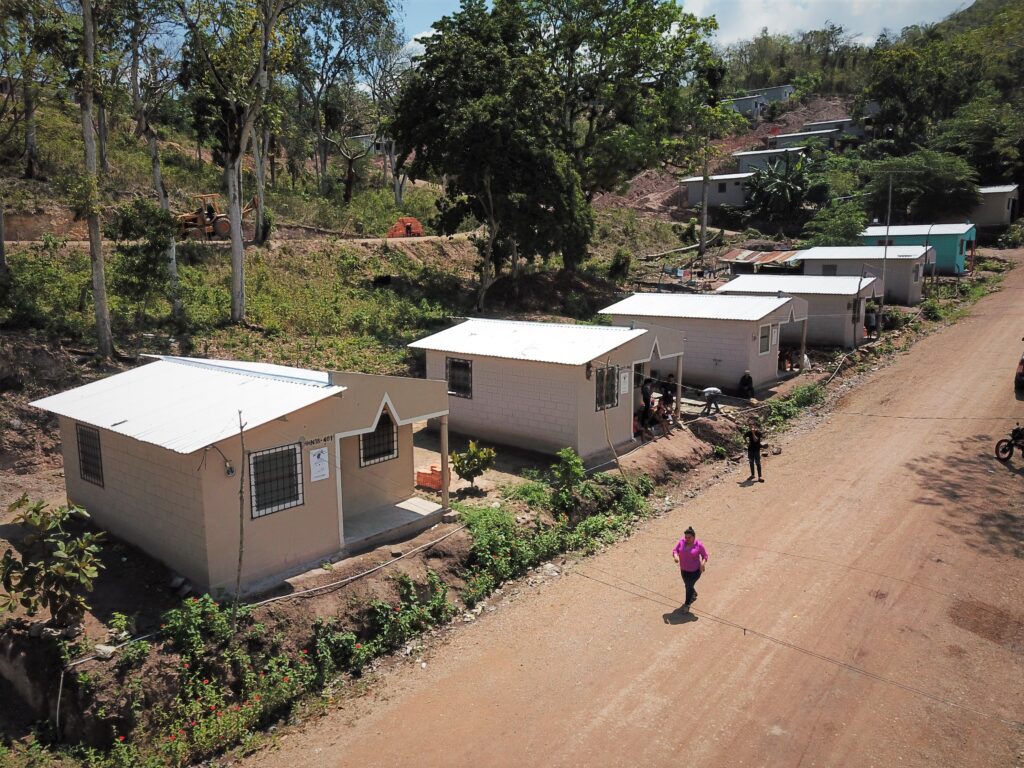
Food For The Poor Canada, in partnership with CEPUDO, is working on building a sustainable community in San Antonio through a number of initiatives including building a school, supporting livelihood and income-generation projects, and building homes for families.
Agricultural Vocational Training Centre
Currently underway is the construction of a vocational training centre that will focus on agricultural training for young adults in grades 7-9. Many students from San Antonio are forced to finish school after grade 6, as the nearest middle school is several kilometers away, and those from low-income households do not have the financial capacity to afford the costs associated with travel. Having an accessible school in the community for higher grades will give students the opportunity to continue their educational journeys, and learn skills that will make them employable after graduation. Educated students who have the proper skills and qualifications to secure employment have a better quality of life as they are able to earn a sustainable livelihood, provide for their families, and give back to their community.

Maria Aracely Benitez is one of the local parents whos children will soon be beneficiaries of the new school.
I want to thank God that my children will now be able to focus on their studies and move forward in our own community since there are many children who leave after the sixth grade. There are many parents who have limited resources and have no way of supporting their children with transportation to study outside of the community and so for this, we are very grateful.
The vocational training centre is the initial phase of a larger set of projects that FFPC is working on with CEPUDO, and is set to be completed in the summer of 2021, just in time for when students return to the classroom for the upcoming school year.
Income-Generation and Women’s Empowerment
Other components that are part of growing San Antonio into a sustainable community include supporting local coffee farmers and beekeepers, and implementing women’s empowerment training workshops.
Income-generation projects will provide local farmers with the materials, resources, and technical assistance they need to produce their own honey and grow their own coffee farms. They will receive comprehensive training on different agricultural practices, providing them with opportunities to generate an income and become self-sustainable. Beekeeping will allow farmers to sell the honey they produce in the market at a competitive price, as it is an in-demand industry, and coffee farmers will have the opportunity to sell their certified organic coffee to various buyers overseas in Europe.

The Women’s Empowerment Training Workshops act as a baseline to better understand the needs of the women in the community, which in turn informs the type of skills-specific workshops that are offered to them.
The workshop consists of modules including emotional intelligence, gender equality, women entrepreneurship, and financial education, and upon completion, women can continue their training within a skill-specific industry. With these newly acquired skills, women can become leaders in their community, start their own business, and earn additional income to provide for their families.
Safe and Secure Housing

A home provides a family with the foundation they need for stability, and communities thrive when people can live with dignity, safety, and have access to resources that allow them to lead happy and healthy lives.
Food For The Poor Canada is looking to build 10 homes in the community of San Antonio with your support. Homes that are not secure leave people vulnerable to danger such as theft and exposure to the elements, especially during the rainy season when inclement weather is common.
By building secure homes, outfitted with electrical wiring, sanitation facilities, and access to a water source, a family’s quality of life drastically improves. They are healthier, happier, and have a space where they can feel safe. Support a family today, and give a gift that will last a lifetime.
FFPC Making Impacts with Partner CEPUDO in San Antonio, Honduras
Food For The Poor Canada, in partnership with CEPUDO, is working on building a sustainable community in San Antonio through a number of initiatives including building a school, supporting livelihood and income-generation projects, and building homes for families.